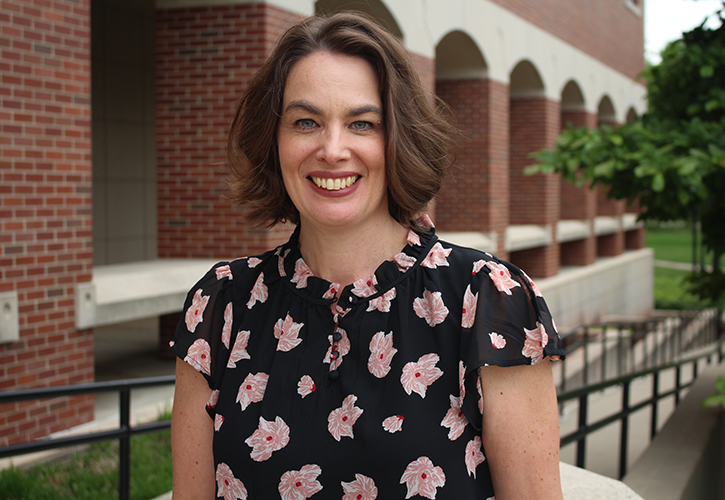College of Arts and Sciences Newsroom

UD Core program helps undeclared students choose majors, find vocation
By Dave Larsen
Choosing an academic major can be a stressful experience for many new college students, who still might be uncertain about their goals and aspirations.
The University of Dayton Core Integrated Studies program helps students make informed choices about academic majors and vocational choices by immersing them in a robust interdisciplinary curriculum and creating a tight-knit intellectual community, according to research published in Issues in Interdisciplinary Studies.
Core is a two-and-a-half year interdisciplinary learning-living program that integrates humanities, arts and social science courses. The program enrolls 120 first-year students annually from across the University, about a third of whom have not declared a major.
The study participants, 13 juniors who began the program as undeclared students in fall 2016 and who were interviewed during spring 2019, said the program had varying levels of influence on their choice of major and discernment of vocation.
“Some students noted their Core program experiences linked directly to their academic major choice and sense of vocation, while others noted a more indirect link,” said Marissa McCray ’00. She wrote the article, Easing the Uncertainty: How an Interdisciplinary Learning-Living Program Helped Undeclared Students Make Academic and Vocational Choices, based on research for her master’s degree in higher education administration, which she received from UD in 2019.
McCray (pictured) served as Core program assistant from 2015 to 2018, and as the program’s coordinator from 2018 to 2020. Currently, she is assistant director of bar preparation in the UD School of Law.
While some students delay declaring a major because they are cautious and methodical about making academic decisions, others have multiple interests and want to study more than one discipline.
The Core program’s curriculum helps students recognize connections between disciplines, and also see how their interest in certain course content could inform their decisions about selecting a major. For example, Core students analyzing a historical event will consider the philosophical and religious implications of the period, as well as the type or rhetoric being used at the time, to gain a fuller picture of what was happening.
“That collective learning of all those disciplines intertwined gives you a different perspective and helps you think things out more from different views,” McCray said. “It opens up your worldview.”
Interdisciplinary courses also enhance students’ critical thinking and problem-solving skills. The students said this influenced their ability to think broadly and critically about academics and wider, more pervasive issues affecting their lives and values.
“I think the Core program is really beneficial, especially if students don’t have a career path in mind because it will give them those skills like critical thinking; it will open them up to new opportunities and it will help them really decide what they like and what they don’t,” said a student called “Anne.” Participants in the study were assigned pseudonyms to protect and maintain confidentiality.
McCray’s research also showed the value of relationships with peers and faculty. Students from the same cohort not only take multiple classes together but also live together on designated floors in a residence hall, aka the “Core floor.”
The study participants said the program’s communal atmosphere enhanced their learning. Many students also spoke of making connections and building rapport with Core professors.
“I had a solid base of intellectual students that I could bounce ideas off,” Anne said. “It was very academically focused, but also just focused on being with holistically educated people. That environment was really beneficial.”
The Core program is open to most undergraduate majors. It offers smaller class sizes and close faculty attention. During their first year in Core, students take a two-semester course sequence exploring the humanities disciplines in small seminars and lecture presentations. Second-year Core consists of three courses that build on first-year concepts that are carried into discussions of contemporary issues. Core concludes in the fall of junior year with a professional ethics course, followed by a completion ceremony during the spring semester. While it is not an honors or accelerated program, students may earn up to 15 honors credits. There is no extra course work and many courses fulfill the University’s Common Academic Plan requirements.
“Marissa’s terrific research simply confirms that Core is a very special program,” said William Trollinger, Core program director and professor of history. “All of it — the interdisciplinarity, the living together in the residence hall, the robust support structure, the deeply committed faculty members — combine to make Core an intellectually vibrant community. It’s a privilege to teach in the program.”
To read McCray’s article, visit the Issues in Interdisciplinary Studies website.
For more information about Core, visit the Core program website.
